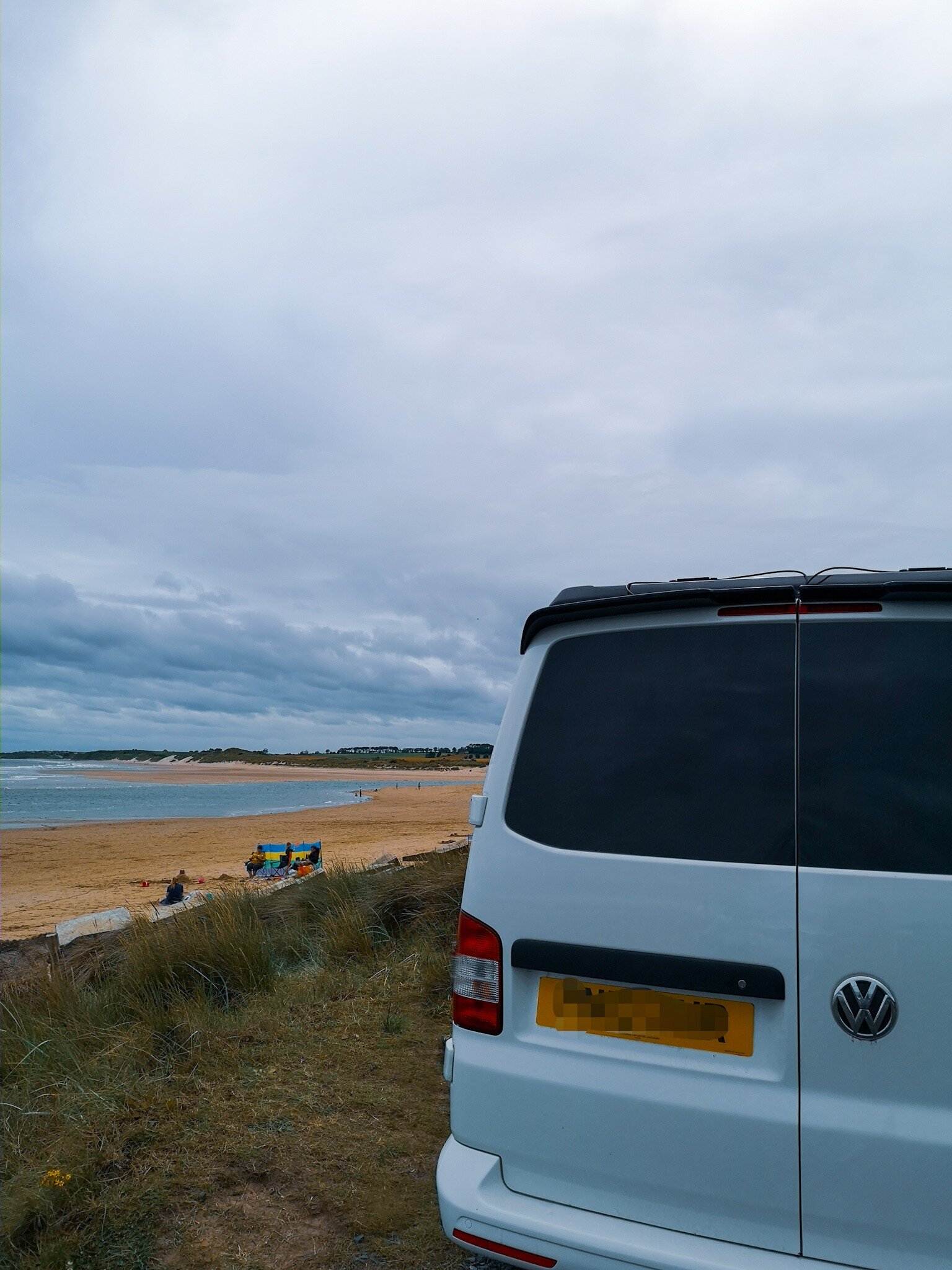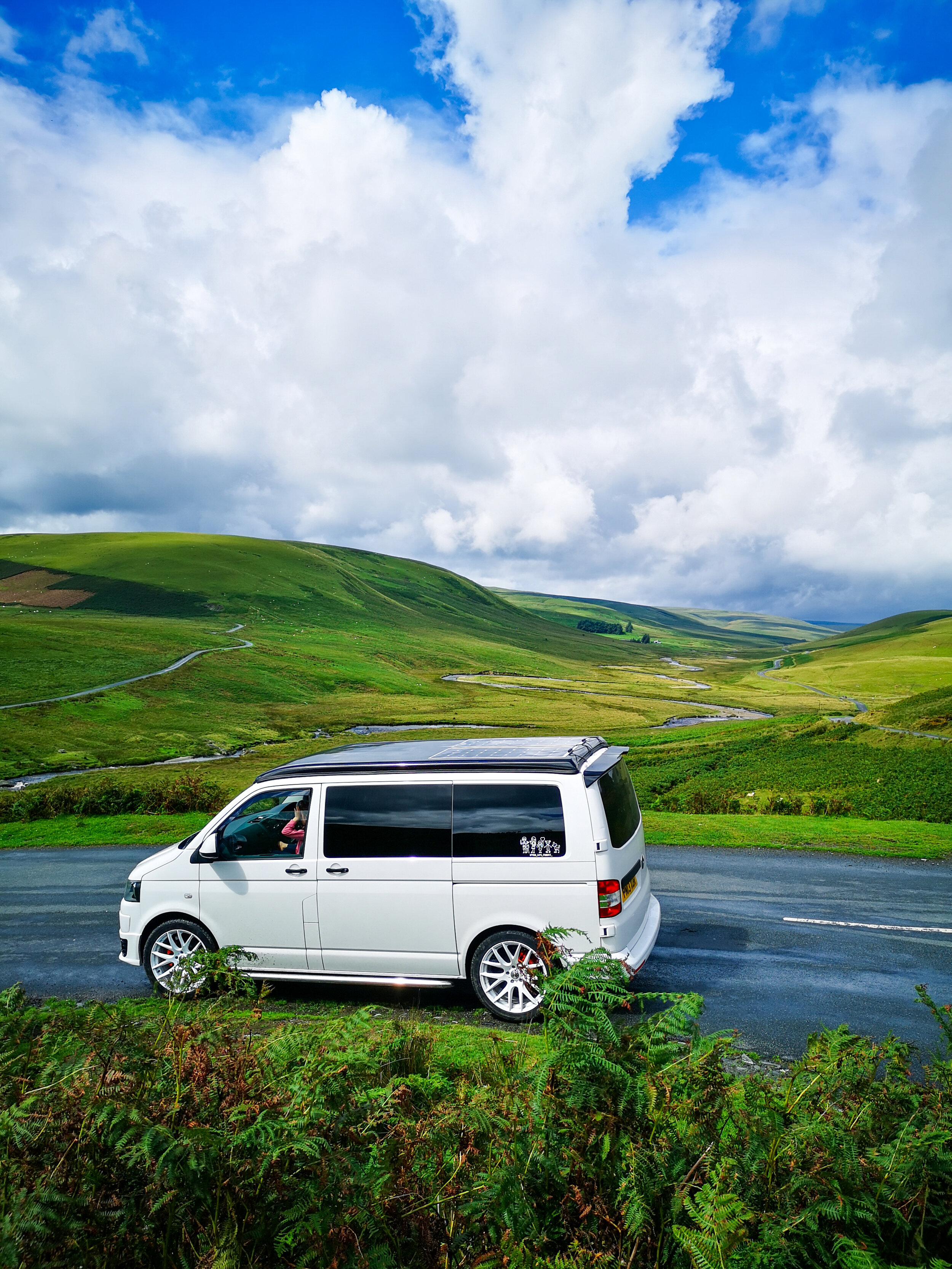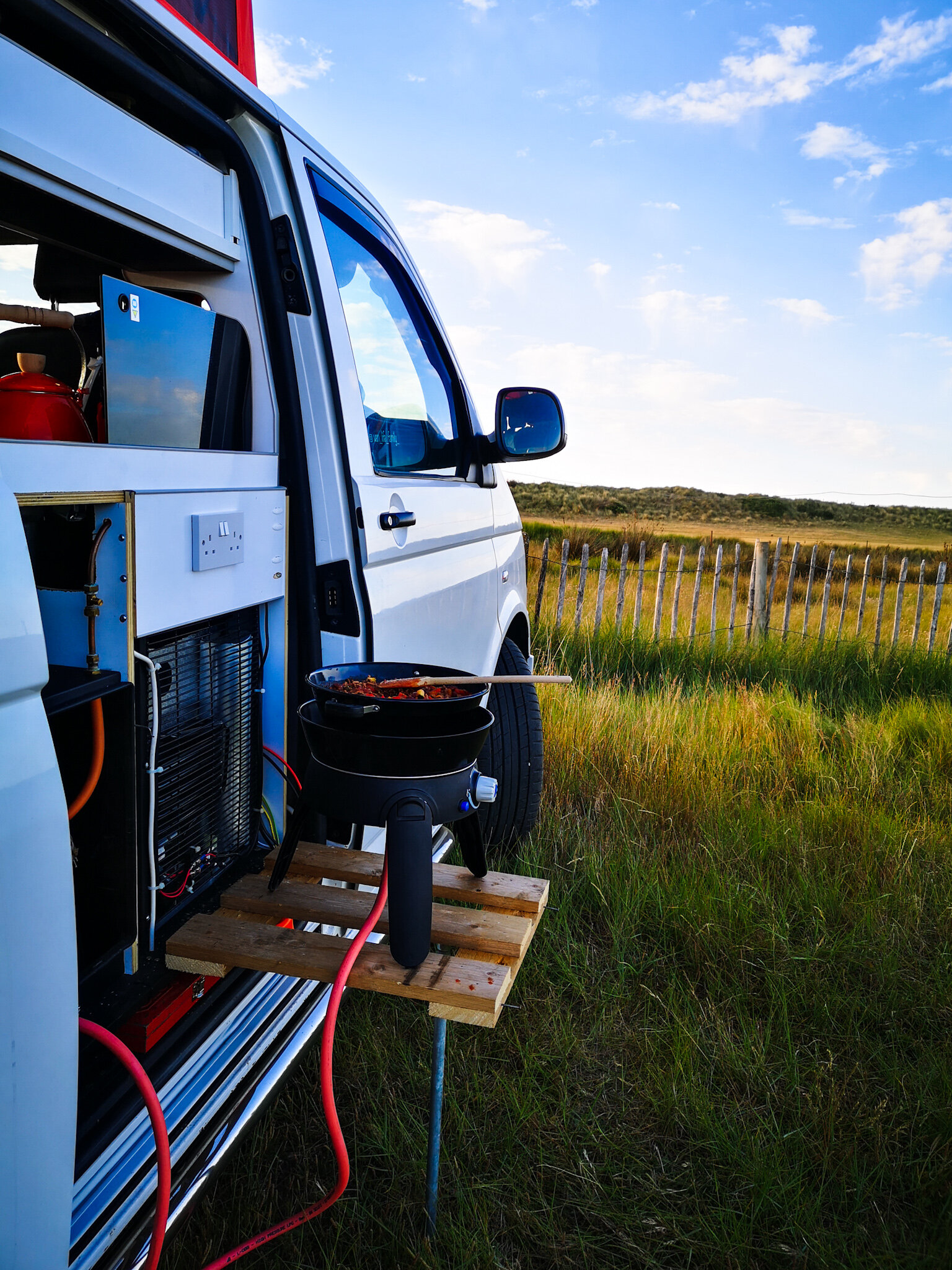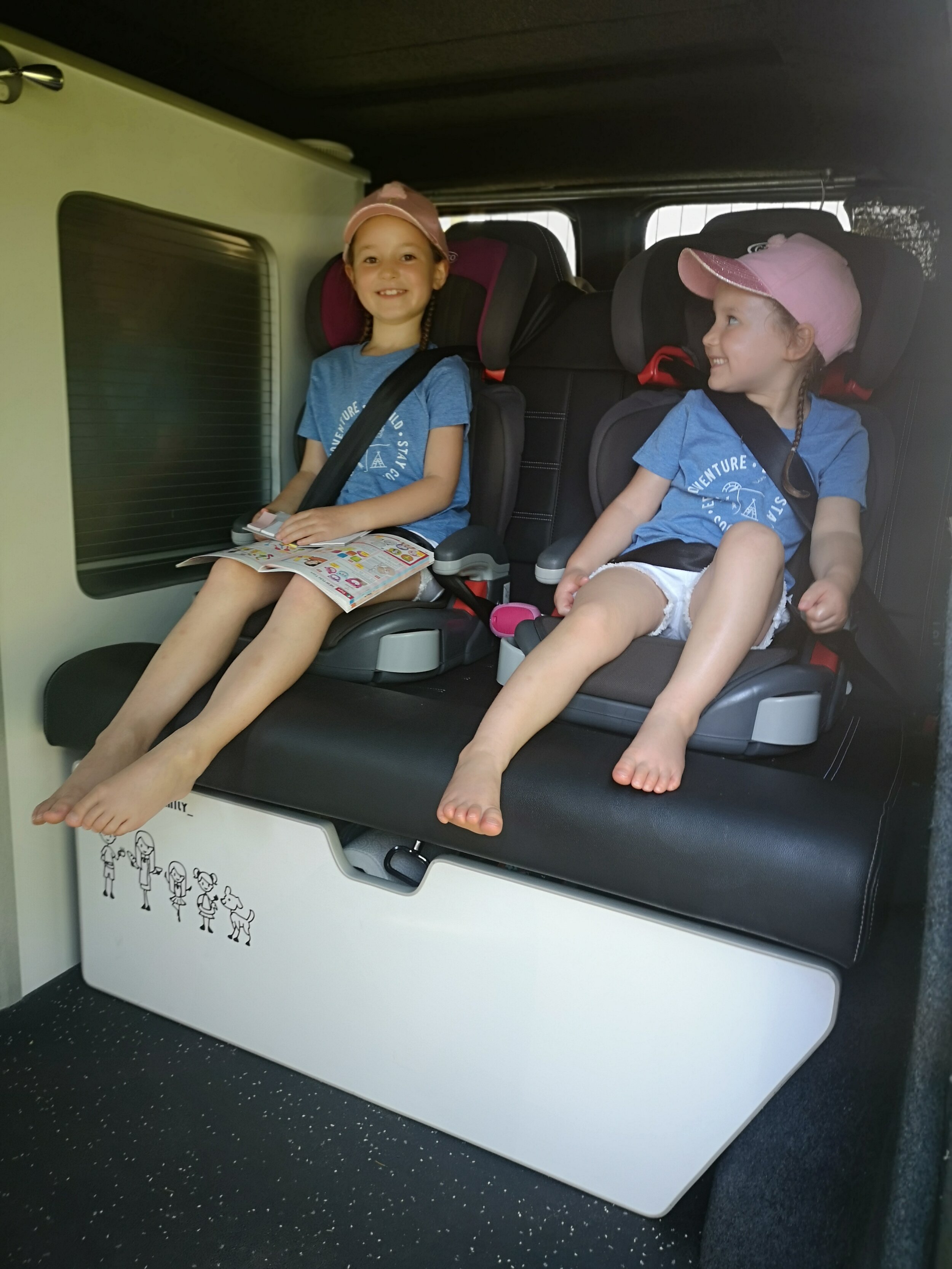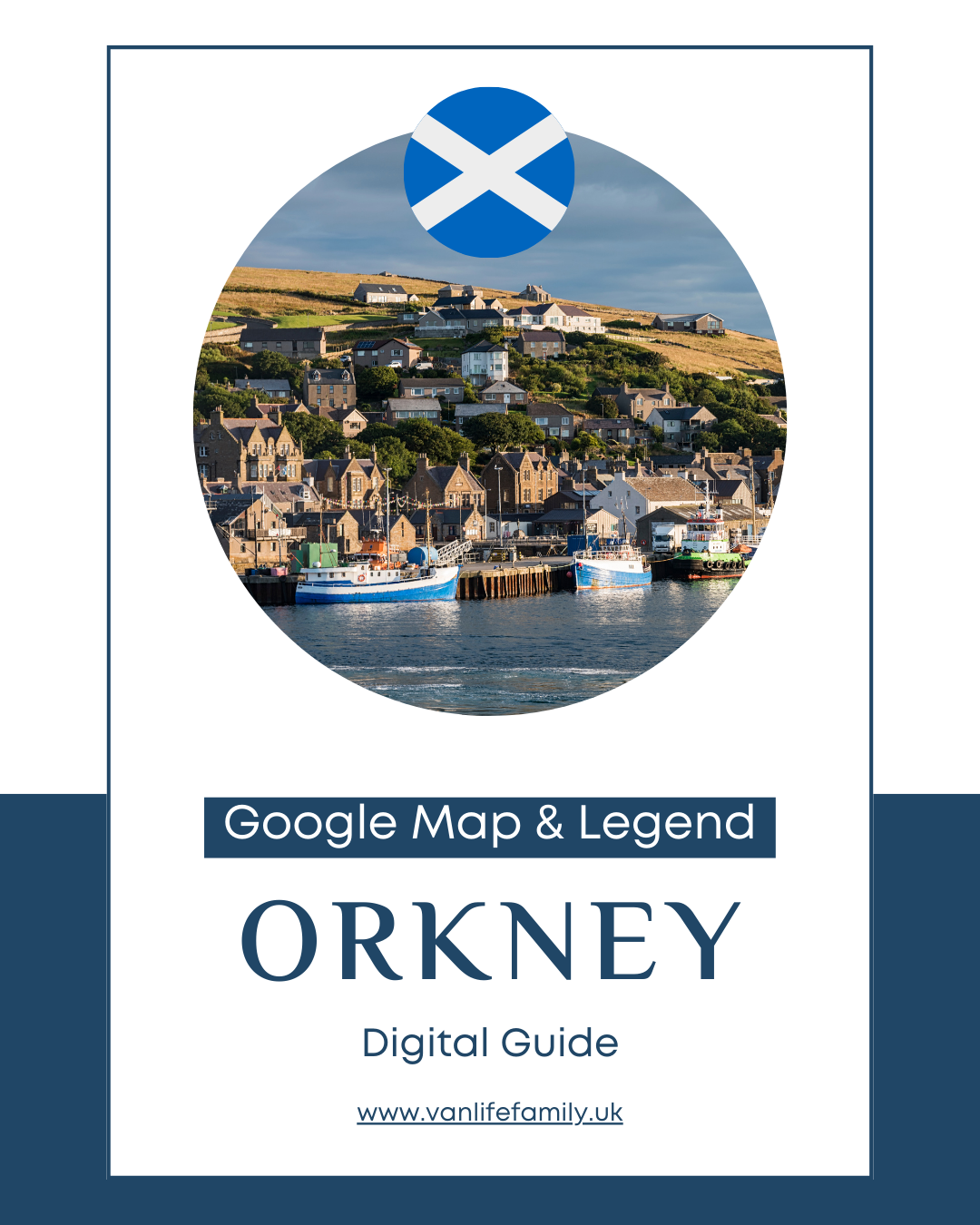First-Time Buyers: What to Look for When Shopping for a Campervan
Shopping for a campervan can be a daunting task, but with a bit of research and patience, you’ll be sure to find the perfect vehicle for your needs. Buying a campervan is an investment, so this blog helps you consider the essentials to ensure you can make a well-informed decision. It might sound obvious, but before you fully invest in vanlife, it is worth hiring a campervan for a weekend to make sure you really love it. Hiring a campervan will help you figure out what does and doesn’t work for you when buying your own. Read more about hiring a campervan here.
Right from the start you are faced with major decisions when buying your first campervan. Should I/we buy brand new or used? A fully or partially converted campervan? Or should I/we buy an ordinary panel van and either have it converted or convert it ourselves? It is likely that your budget will be the driving force behind these choices, but there really are fantastic campervans out there to suit all options.
This blog will mostly focus on buying a van to convert, but the points raised will remain relevant to both brand new and used.
There are so many different types of vans that are suitable for converting into a campervan:
A Volkswagen Caddy or Citroen Berlingo, for example, would make a fabulous mini camper.
The Volkswagen Kombi T3, Volkswagen Transporter, Mitsubishi Express, Kia Preggio, and Ford Transit would fit your requirements if you are in the market for a used mid-sized campervan, with the potential to sleep four people.
Meanwhile, if you are looking for a much larger campervan, then maybe the Volkswagen Crafter, Mercedes Sprinter or Renault Master would be more your style.
While the VW badge might hold a sense of nostalgia, it also comes with a higher price tag. That said, they do also hold their resale value. If you are considering a professional conversion, then I would suggest getting some prices first. This will help you figure out how much you have left to buy the van. Alternatively if you want to buy preconverted, then be sure to research the dealership you’re looking at as well as the campervan’s history if it is a used model. You can usually find out a lot of information about manufacturers by talking to people in Facebook forums and via Instagram.
Some key things worth considering when buying a van are:
Mechanically Sound
Unless you are buying new, you can never be 100% sure of the condition of your van. If you don't have experience in this field or don’t feel confident giving your new van a good inspection, you could consider paying the AA or RAC for a roadside inspection (prices vary).
Mileage
The higher the mileage, the cheaper the van, but it is also worth considering maintenance costs. Whilst an older van often has more character or history and is initially more affordable, it can sometimes come with additional issues. If you are planning on buying an older campervan, make sure you research the Clean Air Zones in particular in the UK if you intend to use your new vehicle as your daily drive.
Maintenance Costs
Investigate how much annual road tax and insurance will cost, especially if the campervan will be an additional vehicle in your household and not your daily drive. If you buy an older van and something goes wrong, will you be able to afford to have the repairs done? Check out Adrian Flux and A Plan for insurance quotes. They specialise in insurance for motorhomes, professionally converted campervans, self-build conversions and bespoke conversions.
Other things to consider are:
Air conditioning? For us, this was essential. The thought of driving in the UK or in Europe without air con and children in the back, just wasn't something we wanted to compromise on. This is also something that is very difficult to add at a later stage.
SBW or LWB? We have a VW T5 short wheel base (SWB). The difference between the SWB and LWB is 40cm. The 40cm could make a big difference depending on where you want/need to be able to park your new campervan.
Barn Doors or Tailgate?
This is always one of the most debated issues! Barn Doors are hinged on the side of the van and rotate about a vertical point. Tailgates are hinged on the top and rotate about a horizontal point — most commonly seen on a car!
The pros for the Barn Doors are definitely that you can fill the van to the max, and not have to worry about everything falling out when you open the doors. Plus you don't need as much room behind the vehicle to open the doors, which might be something to consider if you were using your van as an everyday drive too. But the Tailgate offers shelter from the rain which is often seen as more desirable! Both options are great - consider what you think would work best for you and how you’d like to use your campervan.
Twin sliding doors?
While this wasn't on our list of essentials, we now love having twin doors and wouldn't consider buying another van without them, because we can access kitchen storage from both sides. This is, however, an unusual feature.
DSG Automatic gear box?
If you budget allows, you may wish to have a semi-automatic gear box in your van. A DSG (direct-shift gearbox) is a type of automatic gearbox with two clutches. Basically the gearbox is always prepared for your next move, so the gear shifts are noticeably quick and smooth. Be warned - this is a pricey extra!
In summary, there is a van suitable for every budget and every family!

